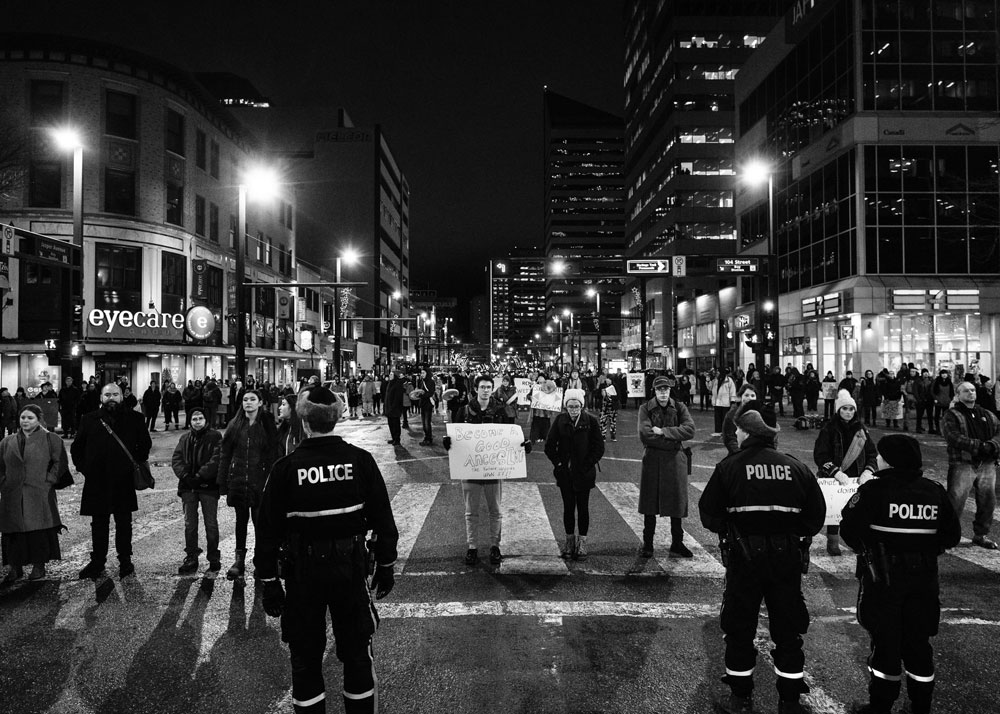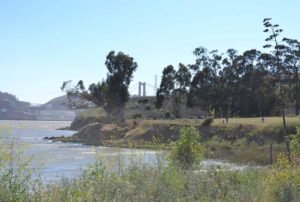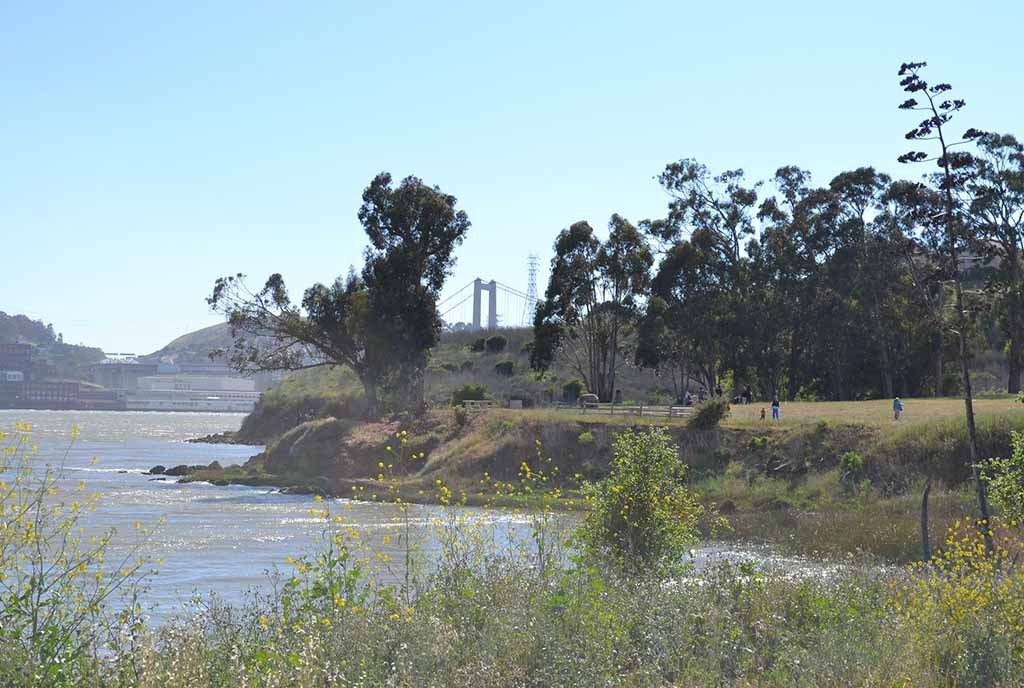
February 13, 2020; Real Peoples Media and Flare
NPQ reported last month that Wet’suwet’en First Nations land defenders had evicted Coastal GasLink pipeline workers from their territory—but the company promised to be back. They have made good on that promise and returned with armed police, sparking protests not just in British Columbia but across Canada.
Coastal GasLink (CGL) and Wet’suwet’en chiefs have been in discussions since 2018 because CGL wants to build a natural gas pipeline across First Nations territory. This negotiation is similar to, but not synonymous with, easements granted by US Native tribes; the Wet’suwet’en clans (there are five) never ceded their territory to Canada. It’s not a reservation held in trust for them by the government, but their own traditional, sovereign land.
Hereditary chiefs have made it clear they will never allow a pipeline to be built across their territory, but CGL and the Canadian government don’t accept this outcome. CGL officials continue to insist on further discussions, and the British Columbia Supreme court has granted two injunctions protecting pipeline workers on indigenous land.
Though CGL workers vacated the territory in January, they returned last week with RCMP (Royal Canadian Mounted Police, informally known as Mounties) who were armed, and who arrested 28 land defenders. (All but eleven were released.) According to YubaNet and several social media accounts, arrestees included three clan matriarchs who were holding a ceremony to honor the spirits of murdered women, girls, and two spirit people.
Dr. Pamela Palmater, a lawyer and Mi’kmaw citizen and specializes in the areas of Indigenous law, politics and governance, said,
In theory, [the RCMP] are supposed to be neutral enforcers of several laws in this country [including First Nation laws, which are protected under section 35 of the constitution]…But what they are not supposed to do is act as a security force, a sheriff or any kind of eviction marshal for private corporations.
This isn’t a protest camp—this is [where] people live. And so the RCMP are acting as a private security force for Coastal GasLink pipeline…the RCMP monitors First Nations as potential threats to national security.
Sign up for our free newsletters
Subscribe to NPQ's newsletters to have our top stories delivered directly to your inbox.
By signing up, you agree to our privacy policy and terms of use, and to receive messages from NPQ and our partners.
Grand Chief Stewart Phillip agreed, saying, “It’s an absolute outrage and deeply frustrating that the RCMP is acting in the capacity of a goon squad on behalf of business and industry.”
This standoff has been going on for over a year, and solidarity movements have spread across Canada and the US. In Vancouver, protestors blocked intersections and bridges for over an hour on Tuesday and Wednesday. In Victoria, indigenous youth occupied the British Columbia legislature. Even Greta Thunberg weighed in.
In Ontario, Tyendinaga Mohawks set up protest camps in their own territory, blocking trains that connect Toronto to Montreal. They aren’t on the tracks, but they’re too close for trains to pass them safely, so no trains have run on the route for eight days now.
“We the people refuse to have the laws of the Canadian nation-state imposed upon us,” said the Tyendinaga. “We will stand our ground, and as stated, not leave until the RCMP pull out of Wet’suwet’en traditional territories.” They, too, are now threatened with an injunction and are watched by armed officers—and they are, again, on their own land.
Minister of Indigenous Services Marc Miller wrote a Facebook post offering to meet with Tyendinaga protest leaders on Saturday. The Ontario Police Patrol came with an offering of maple syrup, wanting to negotiate, but were told by a community member, “I don’t know that we are in a place to have gifts at the moment…You did kind of come here to threaten us.”
Media outlets have been given a stake in this fight as well. For one thing, journalists were detained during the Wet’suwet’en raid, transported out of the territory and kept from reporting. And as might be expected when moneyed interests are fighting a battle that is at least part public relations, paid advocacy groups are promoting videos supporting the pipeline, to convey the impression of disunity in Wet’suwet’en Nation.
It’s unclear how long this fight will go on. Hereditary chiefs say they’ll never allow the pipeline to cross their land, and CGL won’t back down or accept an alternate route. Calls from Amnesty International and the United Nations have not yet had any effect.—Erin Rubin













